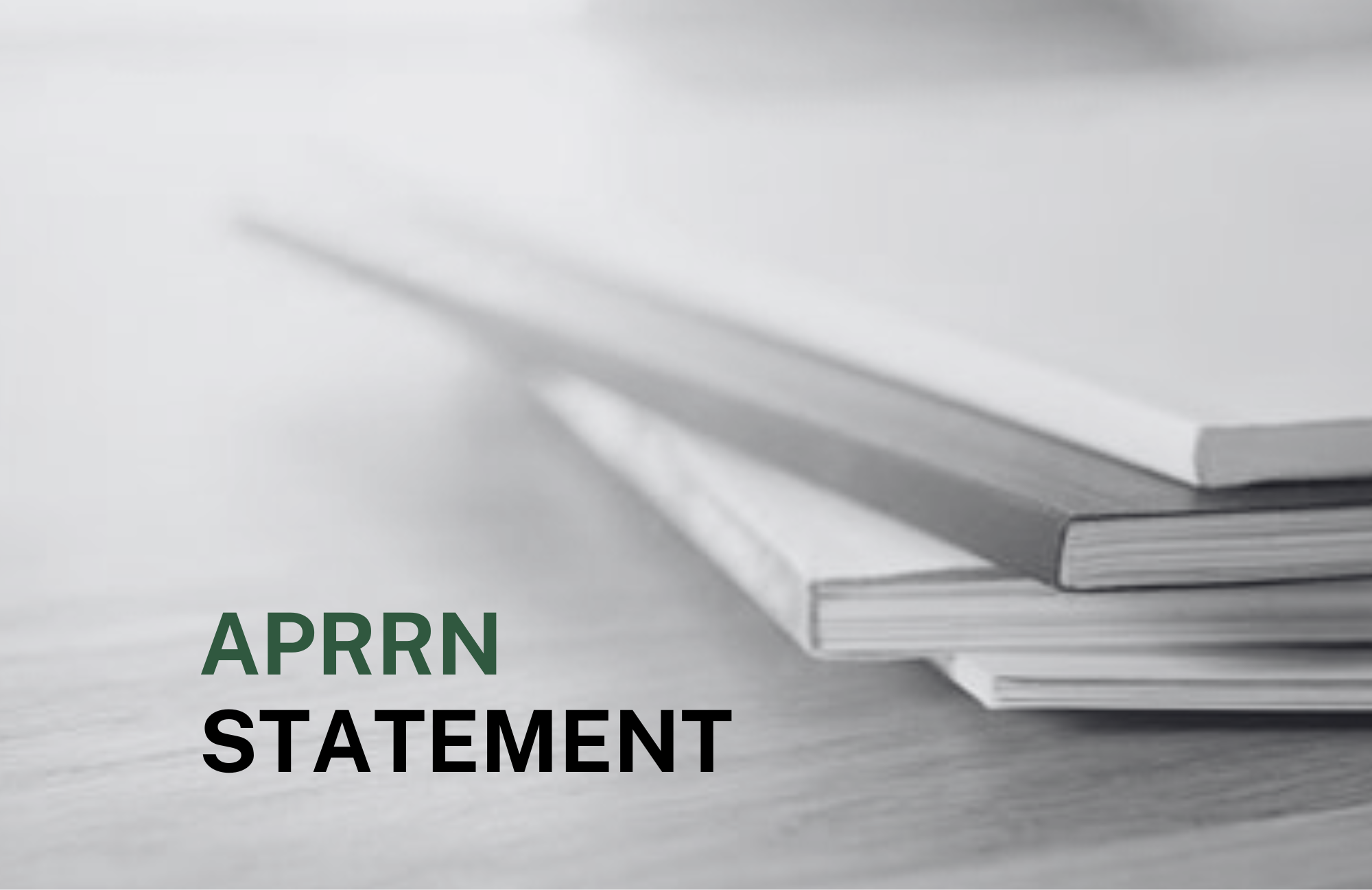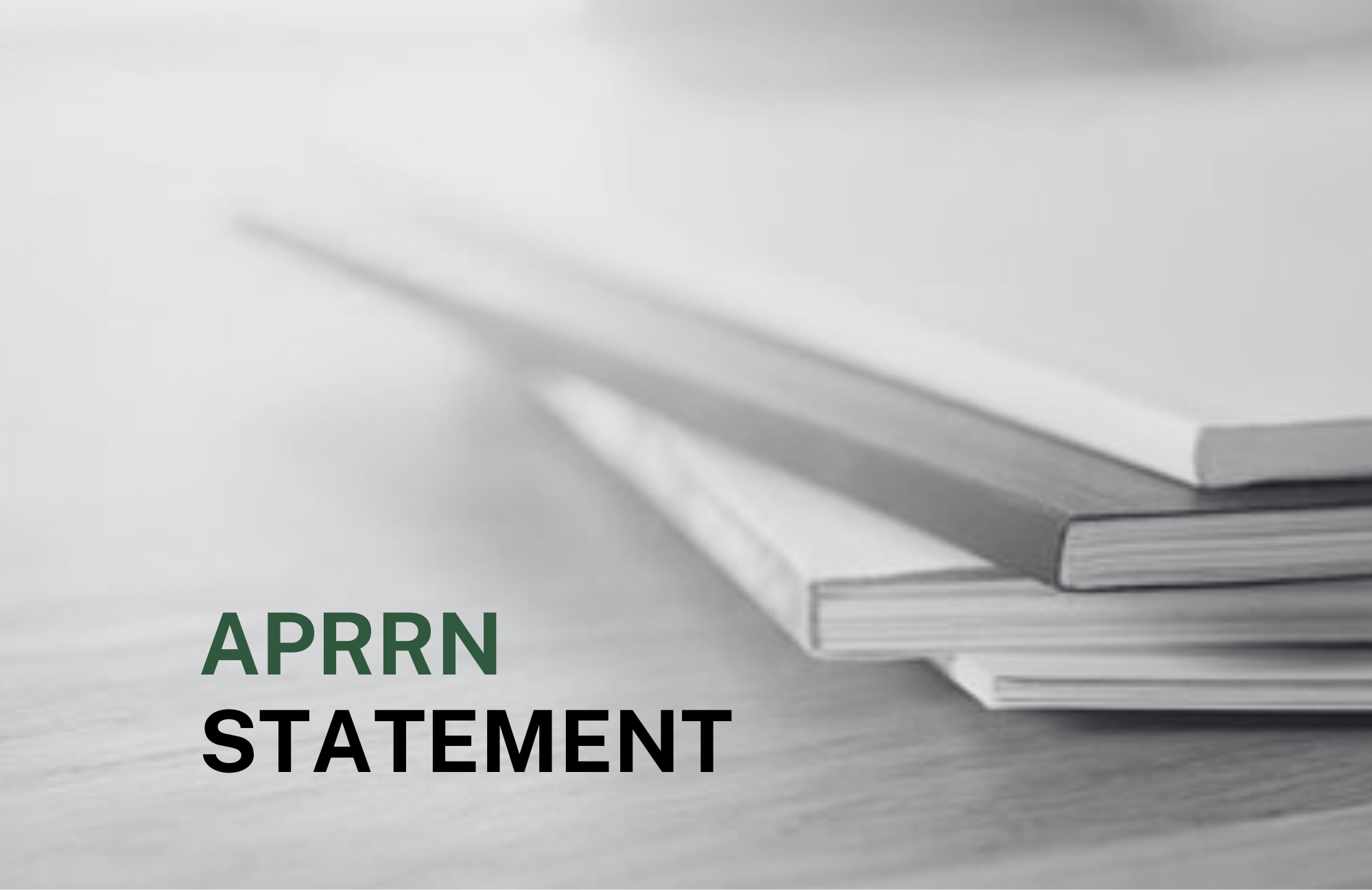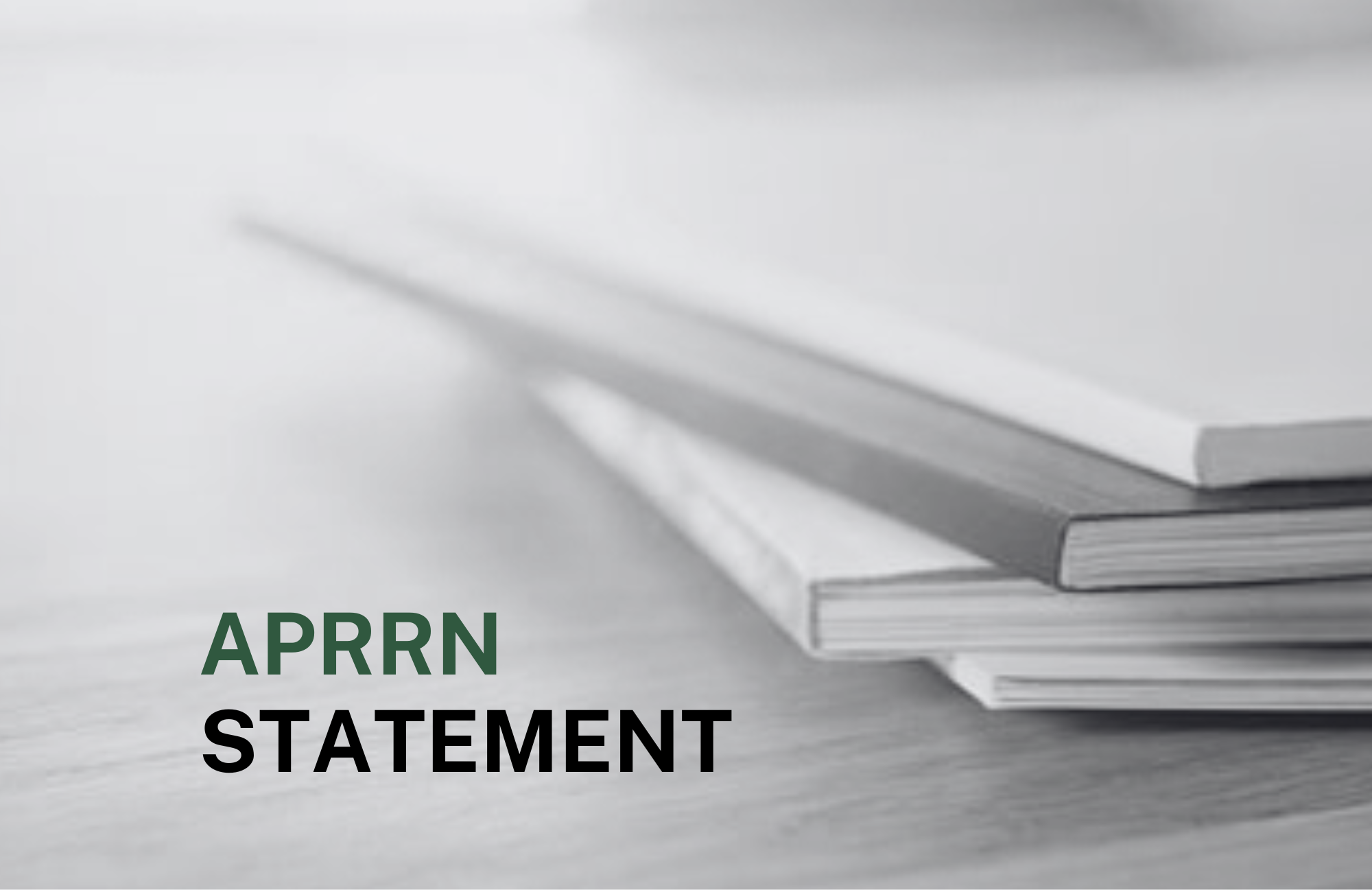APRRN CALLS ON THE ROYAL THAI GOVERNMENT TO COMPLY WITH INTERNATIONAL LAW AND CEASE ITS DEPORTATION OF REFUGEES
20 May 2022
APRRN calls on the Royal Thai Government to comply with international law and cease its deportation of refugees
Bangkok, 24 November 2021
Following the recent refoulement of three Cambodian nationals recognized as refugees by the United Nations High Commissioner for Refugees (UNHCR), the Asia Pacific Refugee Rights Network (APRRN) strongly urges the Thai government to reaffirm its commitment to the principle of non-refoulement (the prohibition against the forcible return of refugees or people seeking asylum to a country where they are liable to be persecuted) in accordance with its international legal obligations.
On 8 November 2021, Thai police arrested Veourn Veasna and Voeung Samnang in Bangkok. Veasna and Samnang were transported to the Phayathai Police Station and then to the Suan Phlu Immigration Detention Center (IDC). On 9 November 2021, UNHCR visited the two men in the IDC and informed the Thai authorities that they were recognized as refugees by UNHCR. Veasna and Samnang informed UNHCR that they feared they would be taken to Cambodia. Later that day, they were forcibly returned to Cambodia, where they are both currently imprisoned. The following day, Thailand presented at the United Nations on its human rights performance over the preceding five years, stating:
Thailand respects the principle of non-refoulement, in accordance with its humanitarian tradition and international obligations under the Convention against Torture and Other Cruel, Inhuman or Degrading Treatment or Punishment (CAT).[1]
The very next day, Thai authorities refouled Cambodian refugee Thavry Lanh.
Veasna, Samnang, and Lang are members of the Cambodia National Rescue Party (CNRP), the country's main opposition party. The CNRP was dissolved in November 2017, just eight months before the 2018 election which was widely assessed to be neither free nor fair. After Veasna, Samnang, and Lanh fled to Thailand, they continued to criticize the Cambodian government’s policies. The Cambodian government has brought politically motivated criminal charges against all three because of their political activism.
As Thailand has acknowledged, it is obliged to respect the principle of non-refoulement. Despite these international legal obligations, the Thai government has repeatedly refouled refugees. The government has frequently cooperated with foreign governments that seek the return of citizens who have sought refuge in Thailand, including the deportation of former Hmong resistance leader Moua Toua Ter to Laos in June 2014;[2] the deportation of 109 Uyghurs to China in July 2015;[3] the deportation of two Chinese activists in November 2015, despite interventions from the United Nations and the Canadian government;[4] and the deportation of Turkish national Muhammet Furkan Sörkmen in May 2017.[5]
Cambodian nationals have been particularly targeted for forcible return. On 8 February 2018, Sam Sokha, a UNHCR-recognized refugee, was deported to Cambodia in connection with a politically motivated in absentia conviction.[6] In December 2018, Rath Rott Mony, a trade-union president and journalist, was arrested and deported to face charges concerning his assistance to a documentary film crew exposing the sex-trafficking of minors.[7] In November 2019, Tor Nimol, a CNRP activist who had earlier been recognized as a refugee, and his wife Chen Lim, were arrested in Bangkok and swiftly returned by Thai authorities to Cambodia. Upon arrival in Cambodia, he was forced to denounce the CNRP in an interview with the government-affiliated Fresh News.[8] His current whereabouts are unknown.
The people of Thailand have a long and proud tradition of affording protection to refugees, and of not returning men, women, and children to places where they are in danger of suffering persecution and harm. Over many generations, the people of Thailand have welcomed many people fleeing conflict and oppression in China, Vietnam, Cambodia, Myanmar, and other neighbouring countries. Many Thai citizens today are the descendants of refugees. In 2019, Thailand showed commendable leadership in establishing a National Screening Mechanism to protect persons who are at risk of persecution. The recent actions of the Thai government have, however, created an atmosphere of fear and insecurity among refugees in Thailand. Hafsar Tameesuddin, Chair of APRRN, has stated: “As a former refugee who once was forced to flee my country, I know how it feels to live in constant fear, helplessness, and insecurity. The Thai government must stop the deportation of refugees and provide safety in line with their moral and humanitarian obligations.” Returning refugees into the hands of their persecutors is in conflict not only with international law, but with the principles and values of the Thai people and their government.
Considering the recent forced returns, we strongly urge the Thai government to:
- Immediately cease the deportation of refugees and people seeking asylum to places where they are likely to be harmed.
- Comply with Thailand’s international legal obligations, as recognised in its recent statements to the United Nations.
- Cease the arrest and detention of people seeking asylum and refugees who are under the protection of the United Nations.
- Enable refugees from Cambodia to register for protection under Thailand’s National Screening Mechanism.
The Asia Pacific Refugee Rights Network (APRRN) is a network of over 200 active civil society organisations and individuals from 29 countries committed to advancing the rights of refugees in the Asia Pacific region. APRRN aims to advance the rights of refugees and other people in need of protection through joint advocacy, capacity strengthening, resource sharing and outreach. While APRRN statements are prepared in consultation with members, they do not necessarily reflect the views of all APRRN members.
[1] Thailand, National report submitted in accordance with paragraph 5 of the annex to Human Rights Council resolution 16/21, A/HRC/WG.6/39/THA/1, 17 August 2021, para. 108.
[2] Di Hoa Le, Laos Preparing Charges Against Deported Hmong Resistance Leader, Radio Free Asia, 7 July 2014.
[3] Govt Confirms Deportation of 109 Uyghurs to China, Bangkok Post, 9 July 2015.
[4] Oliver Holmes, UN condemns Thai repatriation of Chinese dissidents, The Guardian, 17 November 2015.
[5] U.N. expresses grave concern over Myanmar, Thai deportation of Turkish national, Reuters, 27 May 2017.
[6] Cambodia dissident in jail after Thailand deportation, Al Jazeera, 10 February 2018.
[7] Prak Chan Thul, Thailand sends home Cambodian critic wanted over sex-trafficking film, Reuters, 12 December 2018.
[8] Cambodia: Stop Harassment of Opposition Figures in Thailand, Amnesty International, ASA 23/1632/2019, 27 December 2019.
Recommended

May 22, 2025
APRRN Urgent Appeal to the Government of Pakistan to Immediately Halt Forced Deportations of Afghan Refugees
The Asia Pacific Refugee Rights Network (APRRN) express our grave concern over the ongoing forced deportations of Afghan refugees by the Government of Pakistan under the so-called “Illegal Foreigners Repatriation Plan.” In April 2025 alone, some 144,000 Afghans returned from Pakistan, including nearly 30,000 who were deported.

Oct. 5, 2024
Urgent Statement on the Rohingya Crisis and the Need for Regional Protection
We express our deep concern over the ongoing Rohingya crisis and the lack of a comprehensive and coordinated regional response to protect refugees in Southeast Asia. As the situation continues to deteriorate, we call for immediate action from ASEAN, its member states, and the international community.

Sept. 4, 2024
APRRN calls on Home Minister Saifuddin Nasution to free children in Malaysia!
“While children are killed and maimed in Myanmar, Palestine, and other countries around the world, Malaysia keeps those who have fled locked up indefinitely for seeking safety in its territory. This is wrong and unacceptable and must be changed in law and practice.” APRRN’s Co-Secretary General, Hafsar Tameesuddin.